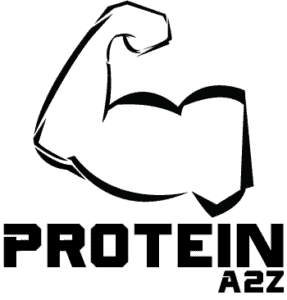Protein powders vary in type, brands and flavors, but does it really matter which one you pick? Yes!
What type of protein powder you use matters because different brands use different quality of ingredients in the process of extracting the protein. Some protein powders are milk-based, whereas others are plant-based. Some powders are more natural, healthier and cleaner to use than others.
Depending on your goals you might want to choose a different type of protein powder. Some contain more sugar and are not a great choice to drink before bed or at all if you are trying to lose weight. Others might cause you some stomach issues in case you are lactose intolerant, so pick wisely.
Table of Contents
What are the different types of protein powder?
According to the protein content percentage, powders can be divided into 3 groups – protein concentrates, protein isolates and protein hydrolysates.
Protein concentrates
The first group is the most common type of protein powder. It contains between 60 to 80% protein in a scoop. The remaining percentage is composed of mainly fats and carbs, some might contain vitamins, artificial sweeteners, or other additives.
Protein isolates
Protein isolates go through an additional process which removes fat and carbs to an extent. Each scoop contains 90 to 95 % protein.
Hydrolysates
Hydrolysates are produced by going through an even more complex process by heating the product and breaking the protein into amino acids. This form of protein is more easily absorbed by your body.
Depending on the source of production, protein powders can be based on:
- Whey
- Casein
- Egg
- Pea
- Beef
- Brown rice
- Hemp
- Soy
- Mixed plant
Which protein powder to choose
Whey protein powder
Whey protein is the standard go-to choice of most gymgoers since it is considered to be the most effective. Its only downside is that it is taken from milk and lactose intolerant people might have issues digesting it. It is rich in branched-chain amino acids, which play a major role in building muscle and recovering from exercise.
Casein protein powder
Casein protein is also found in milk but it digests at a slower rate in your body. If you are looking to bulk up, it is suitable for drinking before bed because it keeps your body busy and stops you from entering a catabolic state. For this reason, it is considered less effective than whey, but it is a more effective form of protein than soy and wheat protein.
Egg protein powder
Egg protein powders are usually made from egg whites, not from whole eggs. They contain all nine of the essential amino acids. Egg protein remains behind only whey protein and is second in amounts of leucine, which plays the largest role in muscle growth.
Additional questions
Is there a vegetarian protein powder?
Pea protein powder is vegetarian and a good idea to try out. Hemp protein is also vegetarian, as it comes only from the seeds of cannabis plants. Pumpkin seed protein, soy protein, brown rice protein, and chia protein powders are also valid vegetarian choices.
Who should not drink whey protein powder?
If you are experiencing trouble digesting milk sugar, and you are lactose intolerant, it might not be the best idea to drink whey protein, as it is derived from milk and might cause you some stomach issues. Otherwise, whey protein powder is completely safe to drink and recommended over other types.


